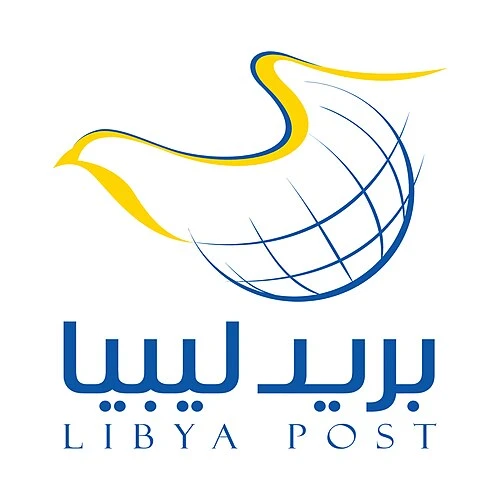Libya Post: Navigating Through Historical, Political, and Socioeconomic Realities
Libya, a North African nation bordering the Mediterranean Sea, has experienced significant turbulence throughout its history. From ancient civilizations to modern conflicts, Libya's journey has been marked by diverse influences and challenges. In this article, we delve into the intricate tapestry of Libya's past, present, and future.
1. Historical Background
Ottoman Rule
Centuries ago, Libya was part of the vast Ottoman Empire, experiencing varying degrees of autonomy under Ottoman rule. This period left an indelible mark on Libyan culture and society, shaping its identity for centuries to come.
Italian Colonization
In the late 19th and early 20th centuries, Italy seized control of Libya, subjecting its people to colonial subjugation and exploitation. This era of colonization led to widespread resistance and laid the groundwork for Libya's struggle for independence.
Independence and Gaddafi Era
After World War II, Libya gained independence in 1951, ushering in a new era of nation-building. However, internal strife and political instability persisted, culminating in Muammar Gaddafi's rise to power in 1969. Gaddafi's authoritarian rule dominated Libyan politics for decades, leaving a complex legacy that continues to influence the country today.
2. Political Landscape
Post-Gaddafi Transition
Following Gaddafi's overthrow in 2011 during the Arab Spring uprisings, Libya embarked on a tumultuous journey towards establishing a new political order. However, the transition was marred by power struggles, factionalism, and external interventions, hindering the country's path to stability and democracy.
Current Government Structure
Presently, Libya grapples with a fragmented political landscape, divided between competing factions and governments vying for legitimacy and control. The Government of National Unity (GNU), formed in 2021 through UN-led negotiations, seeks to navigate these challenges and steer Libya towards reconciliation and unity.
3. Economic Overview
Oil Industry
Libya boasts significant oil reserves, serving as a cornerstone of its economy. However, the volatility of global oil markets, coupled with internal conflicts and infrastructure challenges, poses obstacles to maximizing the sector's potential for sustainable development.
Challenges and Opportunities
Beyond oil, Libya confronts a myriad of economic challenges, including high unemployment, corruption, and inadequate infrastructure. Yet, amidst these obstacles lie opportunities for diversification, investment, and economic revitalization, paving the way for a more resilient and inclusive economy.
4. Social Dynamics
Ethnic and Tribal Makeup
Libya's social fabric is characterized by diverse ethnic and tribal identities, each with its own cultural heritage and historical significance. While these identities enrich Libya's cultural tapestry, they also present challenges in fostering national cohesion and inclusivity.
Human Rights Concerns
Despite strides towards democratization, Libya grapples with persistent human rights abuses, including arbitrary detention, torture, and restrictions on freedom of expression. Addressing these concerns is paramount to building a society founded on respect for human dignity and equality.
5. Security Situation
Conflict Zones
Libya remains plagued by internal conflicts and insecurity, with rival militias vying for control and influence. This fragmented security landscape undermines stability and hampers efforts to address pressing humanitarian needs and rebuild essential infrastructure.
Role of Militias
Militias wield significant power and influence in Libya, often operating beyond the control of central authorities. Their involvement in various spheres, from security to economic activities, complicates efforts to establish effective governance and rule of law.
6. International Relations
Diplomatic Ties
Libya's foreign relations are shaped by a complex web of regional dynamics and global interests. Engaging with neighboring countries, international organizations, and global powers is essential to navigating Libya's geopolitical landscape and pursuing mutually beneficial partnerships.
Involvement in Regional Issues
As a pivotal player in North Africa and the Mediterranean region, Libya's stability and prosperity are intertwined with broader regional dynamics. Addressing transnational challenges, such as migration, terrorism, and maritime security, requires concerted regional and international cooperation.
7. Future Outlook
Reconciliation Efforts
Achieving lasting peace and reconciliation in Libya necessitates inclusive dialogue, national reconciliation, and transitional justice. The ongoing efforts of the GNU and international partners aim to bridge divides, foster trust, and pave the way for a unified and prosperous Libya.
Economic Diversification
Diversifying Libya's economy beyond oil dependency is crucial for long-term sustainability and resilience. Investing in sectors such as agriculture, tourism, and renewable energy holds the potential to create jobs, stimulate growth, and reduce vulnerability to external shocks.
8. Conclusion
In navigating Libya's complex landscape, it is imperative to acknowledge the country's rich history, diverse society, and persistent challenges. By embracing inclusive governance, economic diversification, and regional cooperation, Libya can chart a course towards stability, prosperity, and dignity for all its citizens.
9. frequently asked questions
What role do external actors play in Libya's ongoing conflicts?
External actors, including neighboring countries and global powers, often exacerbate internal tensions by backing rival factions for strategic interests, prolonging the cycle of violence and instability.
How has Libya's oil industry been impacted by internal conflicts?
Internal conflicts and infrastructure challenges have disrupted Libya's oil production and exports, undermining the sector's potential contribution to the economy and hindering efforts towards sustainable development.
What steps are being taken to address human rights abuses in Libya?
Efforts to address human rights abuses in Libya include strengthening institutions, promoting accountability, and fostering a culture of respect for human rights through legal reforms and international cooperation.
What initiatives are underway to promote national reconciliation in Libya?
National reconciliation efforts in Libya focus on inclusive dialogue, transitional justice, and community engagement to bridge divides, build trust, and foster a sense of shared national identity.
How can regional cooperation contribute to stability in Libya?
Regional cooperation, particularly in addressing transnational challenges like migration and terrorism, is essential for enhancing security, promoting economic development, and fostering mutual trust among neighboring countries.
